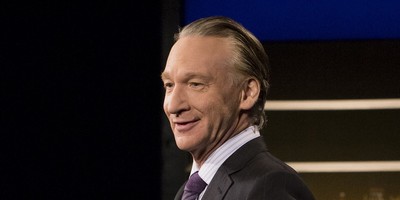As we approach Election Day, it’s worthwhile to reflect on what has taken place over the course of the last two years. In November 2008, Big Labor was licking its chops anticipating passage of arguably the most significant change in labor law in American history. The bail out to union bosses known as the Employee ‘Forced’ Choice Act (EFCA) was imminent after Big Labor dropped nearly half a billion dollars getting the current administration and Congressional leadership elected.
Yet, today, President Obama and labor bosses have lost support on their forced unionization agenda both with the electorate and in Congress. Small businesses have stood up and made their voices heard and the American people have echoed their concerns.
Take West Virginia, for example. Just days ago, Governor Joe Manchin, who is running for the U.S. Senate stated that he didn’t support EFCA, relenting after fierce pressure from job creators. He stated his opposition to both the card check and mandatory, binding arbitration provisions within the legislation. This comes after Manchin received the endorsement of the American Federation of Labor and Congress of Industrial Organizations (AFL-CIO) and publicly stated his support for EFCA, even signing a letter to Senate leadership. His most recent statements continue a bandwagon effect where candidates across the country are running away from union bosses.
In Colorado, after months and months of silence on his stance concerning the Employee ‘Forced’ Choice Act, Senator Michael Bennet finally stated he would not support the legislation. The Workforce Fairness Institute continues to put pressure on Bennet to solidify this stance by joining with other Colorado candidates who oppose EFCA’s specific provisions and put it in writing.
Recommended
But why has there been this sudden trend of candidates publicly opposing EFCA? One look at the bill’s components and it’s not difficult to understand. Since its introduction into this Congress, the Employee ‘Forced’ Choice Act has been pushed as Big Labor’s number one priority, as it would increase unionization and put more dues into union boss coffers. But the damaging effects of this bill far outweigh any so-called benefits labor bosses are claiming.
First, EFCA would remove workers’ right to a secret ballot vote – what Manchin called “the most precious thing you own.” Secondly, it removes the right of workers to vote on contracts empowering government bureaucrats to force terms on employees and employers alike. And lastly, an economic study revealed that EFCA would lead to a loss of 600,000 jobs in the first year it is enacted. With unemployment hovering near ten percent, the last thing the country needs is a bill that will cost even more jobs.
These realities have hit home with voters. And the opposition from previous EFCA supporters isn’t exclusive to the Senate. Candidates for the U.S. House are also planting a firm foot in support of workers and against Big Labor. For instance, Representative Ron Klein, who not only voted for EFCA in 2007 but signed on as a co-sponsor in 2009, announced his opposition. His reason? Like so many new EFCA opponents, Klein has become a newfound, ardent supporter of the secret ballot.
With so many candidates coming clean to voters hours and days in advance of Election Day, the dynamics of the debate have certainly changed quite a bit. And while small businesses can take nothing for granted, we certainly have come a long way over the last two years.

























Join the conversation as a VIP Member